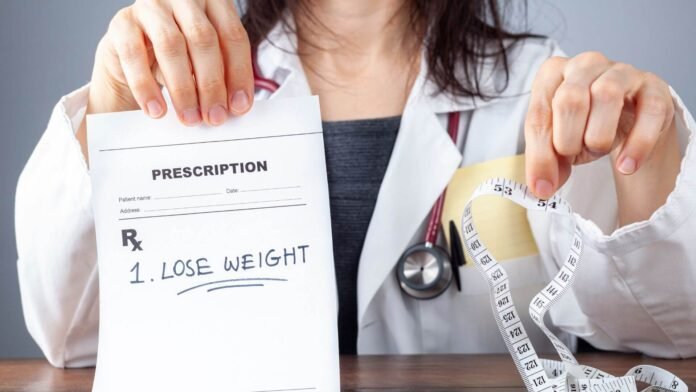If you’re a woman struggling with PCOS or hormonal imbalances, chances are you’ve been told to “just lose weight” more times than you can count. And while weight management does play a crucial role in managing symptoms, it’s far more complicated than simply dieting or hitting the gym. The truth is, for women dealing with polycystic ovary syndrome (PCOS) or other hormone-related disorders, traditional weight loss methods often fall short.
So what’s the alternative? Let’s discuss how medical weight loss offers a science-backed, personalized approach to addressing both PCOS and hormonal imbalance—and why it might finally give you the breakthrough you’ve been looking for.
Table of Contents
What Is PCOS and How Is It Tied to Weight?
PCOS (Polycystic Ovary Syndrome) is one of the most common endocrine disorders among women of reproductive age. It affects how a woman’s ovaries function, often leading to:
- Irregular periods or no periods at all
- Excess androgen levels (male hormones)
- Cysts on the ovaries
- Infertility
- Acne and unwanted hair growth
- Difficulty losing weight
But perhaps the most frustrating symptom? Unexplained weight gain—especially around the belly. Even with intense exercise and dieting, many women with PCOS see little to no change. Why?
The answer lies in insulin resistance, one of the core drivers of PCOS. It means your body has a harder time processing sugar, which not only leads to weight gain but also further throws your hormones out of whack. It’s a vicious cycle.
That’s where medical weight loss comes in.
If you’re looking for an effective and personalized approach to managing PCOS, I highly recommend checking out drkatekass.com. Their Medical Weight Loss in Seattle program offers a tailored solution designed to address your specific hormonal health needs.
For those seeking a trusted approach to hormonal weight loss, drkatekass.com provides expert guidance and tailored programs for women with PCOS.
Let’s First Understand: What Is Medical Weight Loss?
Medical weight loss is a doctor-supervised weight loss program that is tailored to your body’s biology, lab results, and hormone profile. Unlike one-size-fits-all diets, this approach involves:
- In-depth health assessments
- Blood tests to evaluate hormones and metabolism
- Prescription medications (if needed)
- Nutritional guidance tailored for hormone health
- Lifestyle changes that work with your body—not against it
Now let’s explore how this method specifically helps women battling PCOS and hormonal issues.
1. Targets Insulin Resistance at Its Root
If you have PCOS, there’s a high chance that insulin resistance is playing a major role. It doesn’t just affect your blood sugar—it triggers your ovaries to produce more androgens (male hormones), which in turn causes more PCOS symptoms.
Medical weight loss programs address this root problem by:
- Recommending low-glycemic or anti-inflammatory diets
- Prescribing medications like Metformin or GLP-1 agonists (e.g., Ozempic, Wegovy) to improve insulin sensitivity
- Monitoring your glucose and insulin levels regularly
By stabilizing your blood sugar, you’re not only making weight loss possible—you’re also reducing acne, excess hair growth, and even restoring ovulation in many cases.
Have you ever tried everything and still felt like your body was working against you? That’s because it probably was—until now.
2. Supports Hormonal Balance Through Customized Nutrition
Most calorie-cutting diets don’t work for PCOS because they ignore your hormonal needs. Your body isn’t just asking for fewer calories—it’s asking for hormonal healing.
Medical weight loss programs typically include a nutrition plan focused on:
- Whole foods with low glycemic indexes
- Healthy fats like avocados and olive oil
- Lean proteins to support muscle mass
- Fiber-rich vegetables to improve digestion and hormonal detox
Some programs may even include hormone-supporting supplements such as:
- Inositol (for insulin sensitivity)
- Omega-3 fatty acids
- Vitamin D
- Magnesium
Let’s ask: Are you feeding your hormones or fighting them? Medical guidance ensures your food works with your body.
3. Utilizes Hormone Therapy (When Appropriate)
In some cases, weight gain and PCOS symptoms are made worse by imbalances in estrogen, progesterone, or thyroid hormones. Medical professionals can test for these and may recommend bioidentical hormone therapy or other interventions to restore equilibrium.
For example:
- Women with low progesterone might be given cyclic progesterone therapy
- Thyroid conditions like hypothyroidism may be treated with levothyroxine
- Estrogen dominance might be managed through dietary changes and herbal supplements
This is where the medical aspect is crucial—you’re not guessing, you’re treating the exact imbalance.
4. Includes Medications That Actually Work for PCOS Bodies
Sometimes, your body needs more help than diet and exercise alone can offer. Medical weight loss programs can incorporate FDA-approved medications that are proven to help with both weight and insulin resistance.
Some commonly used medications in PCOS-focused programs include:
- Metformin: Improves insulin sensitivity and may help restart ovulation
- GLP-1 receptor agonists (Ozempic, Wegovy): Help reduce appetite and improve glucose control
- Spironolactone: Reduces male hormones and helps with acne/hair growth
- Birth control pills: Regulate menstrual cycles (though not a weight loss tool)
This personalized pharmacological support can make a dramatic difference in how your body responds to treatment.
5. Focuses on Mental and Emotional Wellbeing
Let’s be honest—dealing with PCOS or hormonal weight gain can be emotionally exhausting. The mood swings, the body image issues, the anxiety—it all piles up.
Medical weight loss programs often include:
- Access to mental health professionals
- Coaching or counseling
- Stress management tools like yoga, meditation, or mindfulness training
Because your mental health isn’t separate from your hormones—it’s deeply intertwined.
Have you been giving your emotional well-being the attention it deserves? Sometimes the path to healing starts with inner peace.
6. Monitors Progress with Data—Not Just the Scale
Another frustrating part of living with PCOS is that the scale often doesn’t reflect your efforts. That’s why medical programs go beyond weight and measure:
- Body composition (muscle vs. fat)
- Hormone levels
- Metabolic rate
- Energy and mood tracking
- Sleep quality
This full-body feedback helps adjust your plan in real-time and ensures you’re seeing results—even if they aren’t visible in pounds.
7. Helps Restore Fertility Naturally
One of the most heartbreaking challenges of PCOS is infertility. But here’s the hope: losing just 5-10% of your body weight can significantly improve ovulation and menstrual regularity.
Many women who follow medically guided weight loss plans go on to conceive naturally—without needing expensive IVF treatments.
That’s the power of healing from within.
Real Talk: Why DIY Doesn’t Work for Hormonal Weight Issues
Let’s be real—Google, influencers, and fad diets don’t understand your unique body chemistry. If you’ve been “doing everything right” and still not seeing results, it’s not your fault.
Hormonal weight gain is not about laziness or lack of discipline. It’s about complex internal systems that need professional care. Medical weight loss takes the guesswork out and replaces it with data, structure, and support.
Wouldn’t you rather work with your hormones instead of fighting them blindly?
Final Thoughts: Hope, Healing, and a Plan That Works
If you’re living with PCOS or dealing with stubborn hormonal weight, please know this: you’re not broken. You’re not doing it wrong. You just need a different approach—one that honors your biology, respects your challenges, and gives you the tools to thrive.
Medical weight loss isn’t just about shedding pounds—it’s about reclaiming balance, confidence, and control over your body.
Let’s recap the benefits:
- Improved insulin sensitivity
- Balanced hormones
- Sustainable nutrition plans
- Emotional and mental health support
- Targeted medications when needed
- Restored cycles and potential fertility
- Finally, real and lasting results
Are you ready to stop surviving and start thriving?
The path to healing may not be easy, but it’s absolutely possible—with the right guidance, a science-backed plan, and belief in your body’s power to change.
Apart from that if you want to know about Women’s Health in Dubai then please visit our Health Category.
















